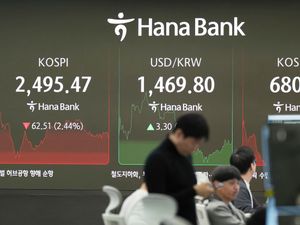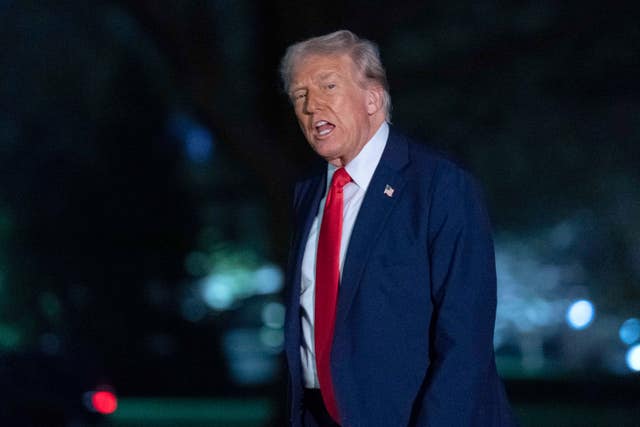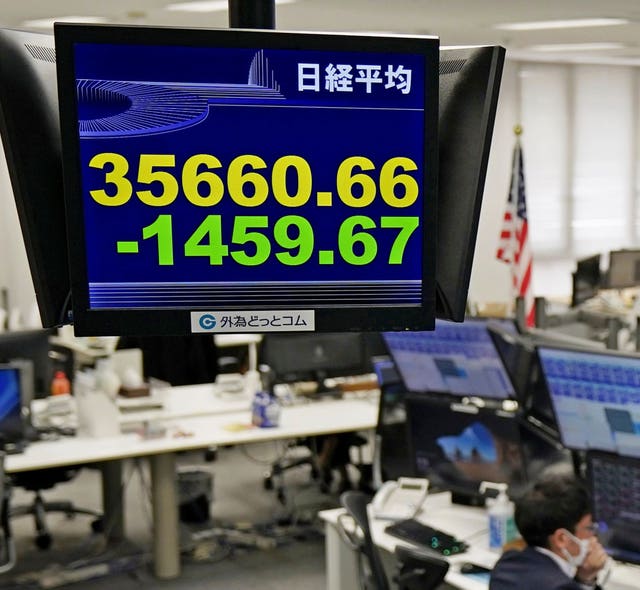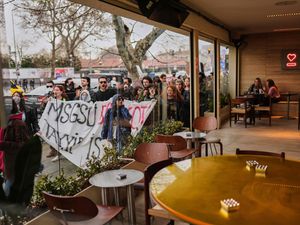Stock markets around the world tumble as Trump’s ‘Liberation Day’ approaches
The US is set to begin what Mr Trump calls ‘reciprocal’ tariffs this Wednesday.

US President Donald Trump’s “Liberation Day” is fast approaching, and stock markets around the world are tumbling Monday in advance of it.
On Wall Street, the S&P 500 was down 1.3% following one of its worst losses of the past couple of years on Friday.
It is on track to finish the first three months of the year with a loss of 6.4%, which would make this its worst quarter in nearly three years.

The Dow Jones Industrial Average was down 295 points, or 0.7%, as of 9.35am Eastern time, and the Nasdaq composite was 2.3% lower.
The US stock market’s drops followed a sell-off that spanned the world earlier on Monday as worries build that tariffs coming on Wednesday from Mr Trump will worsen inflation and grind down growth for economies.
Mr Trump has said he is ploughing ahead in part because he wants more manufacturing jobs back in the US.
In Japan, the Nikkei 225 index dropped 4%. South Korea’s Kospi sank 3%, and France’s CAC 40 fell 1.5%.
Instead of stocks, which can be some of the riskiest possible investments, prices rose for things considered safer bets when the economy is looking shaky.
Gold rose again to crest 3,150 dollars per ounce and was heading towards another record.
Prices for Treasury bonds also climbed, which in turn sent their yields down.
The yield on the 10-year Treasury fell to 4.19% from 4.27% late Friday and from roughly 4.80% in January.

Its yield has been falling as worries have built about tariffs.
On Wednesday, the US is set to begin what Mr Trump calls “reciprocal” tariffs, which will be tailored to match what he sees is the burden each country places on his, including things like value-added taxes.
Even if Mr Trump’s tariffs end up being less harsh than feared, the worry is that all the uncertainty created by them may cause US households and businesses to freeze their spending, which would hurt an economy that had closed last year running at a solid pace.
On Wall Street, some familiar names were leading the way downward for the US stock market.
Tesla fell 7.3% to bring its loss for the year so far to 39.5%.
It has been the second-worst performer in the S&P 500 so far this year in large part because of fears that the electric-vehicle maker’s brand has become too intertwined with its chief executive Elon Musk.
Mr Musk has been leading US government efforts to cut spending, making him a target of growing political anger, and protests have been swarming Tesla showrooms as a result.
It is a sharp drop-off following a surge of roughly 90% in the weeks following November’s Election Day, when the thought was that Mr Musk’s close relationship with Mr Trump could help the company’s finances.
Tesla’s stock is back below where it was November 5.
In stock markets abroad, Thailand’s SET lost 1.5% after a powerful earthquake centred in Myanmar rattled the region, causing widespread destruction in the country, also known as Burma, and less damage in places like Bangkok.
Shares in Italian Thai Development, developer of a partially built 30-story high-rise office building under construction that collapsed, tumbled 27%.
Thai officials said they are investigating the cause of the disaster, which left dozens of construction workers missing.





